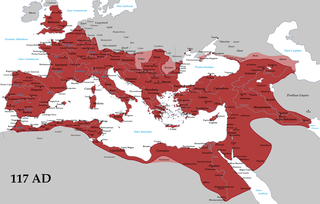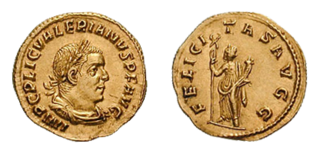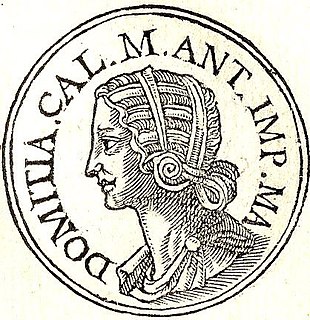![Aureus issued under Macrinus: he and his son Diadumenianus are depicted as providing for the people as Liberalitas embodied stands by (with the legend reading LIBERALITAS AUG[USTORUM]) Aureus Macrinus-RIC 0079.jpg](http://upload.wikimedia.org/wikipedia/commons/e/ee/Aureus_Macrinus-RIC_0079.jpg)
In ancient Roman culture, liberalitas was the virtue of giving freely (from liber, "free"), hence generosity. On coins, a political leader of the Roman Republic or an emperor of the Imperial era might be depicted as displaying largess to the Roman people, with liberalitas embodied as a goddess at his side. [1] The goddess Liberalitas appears on coinage issued under the emperors Gordian III Trajan, Antoninus Pius [2] and Septimius Severus, [3] sometimes designated as Augusta or Augusti in association with Imperial cult. On one example, a Roman holds out his toga to receive coins poured by Liberalitas, as Antoninus looks on from an elevated seat. [4]

The Roman Republic was the era of classical Roman civilization beginning with the overthrow of the Roman Kingdom, traditionally dated to 509 BC, and ending in 27 BC with the establishment of the Roman Empire. It was during this period that Rome's control expanded from the city's immediate surroundings to hegemony over the entire Mediterranean world.

The Roman emperor was the ruler of the Roman Empire during the imperial period. The emperors used a variety of different titles throughout history. Often when a given Roman is described as becoming "emperor" in English, it reflects his taking of the title Augustus or Caesar. Another title often used was imperator, originally a military honorific. Early Emperors also used the title princeps. Emperors frequently amassed republican titles, notably princeps senatus, consul and pontifex maximus.

The Roman Empire was the post-Roman Republic period of the ancient Roman civilization. Ruled by emperors, it had large territorial holdings around the Mediterranean Sea in Europe, North Africa, the Middle East, and the Caucasus. From the constitutional reforms of Augustus to the military anarchy of the third century, the Empire was a principate ruled from Italy, homeland of the Romans and metropole of the empire, with the city of Rome as capital. The Roman Empire was then ruled by multiple emperors and divided in a Western Roman Empire, based in Milan and later Ravenna, and an Eastern Roman Empire, based in Nicomedia and later Constantinople. Rome remained the nominal capital of both parts until 476 AD, when Odoacer deposed Romulus Augustus after capturing Ravenna and the Senate of Rome sent the imperial regalia to Constantinople. The fall of the Western Roman Empire to barbarian kings, along with the hellenization of the Eastern Roman Empire into the Byzantine Empire, is conventionally used to mark the end of Ancient Rome and the beginning of the Middle Ages.
The divine Virtues are sometimes associated with a particular activity or function performed by the emperor—in the case of Liberalitas, the congiarium or giving of gifts by the emperor directly to individuals. [5] The enacting of the particular virtue was considered an epiphany of the goddess or miraculum : Liberalitas was thought to have manifested herself when Trajan distributed cash gifts to the populace during his formal arrival ceremony (adventus) in 99 AD. [6] Pliny names the quality of liberalitas in his Panegyric to Trajan. [7]
Of Ancient Roman containers, a congiarium, or congiary, was a vessel containing one congius, a measure of volume equal to six sextarii.

Theophany is the appearance of a deity to a human.

The adventus was a ceremony in ancient Rome, in which an emperor was formally welcomed into a city either during a progress or after a military campaign, often Rome. The term is also used to refer to artistic depictions of such ceremonies. Its 'opposite' is the profectio.
Liberalitas was theologically linked to Providentia, "providence", and Annona, the embodiment of the grain supply. [8]
In ancient Roman religion, Providentia is a divine personification of the ability to foresee and make provision. She was among the embodiments of virtues that were part of the Imperial cult of ancient Rome. Providentia thus figures in art, cult, and literature, but has little or no mythology as such.

Annona is a genus of flowering plants in the pawpaw/sugar apple family, Annonaceae. It is the second largest genus in the family after Guatteria, containing approximately 166 species of mostly neotropical and afrotropical trees and shrubs. The generic name derives from anón, a Hispaniolan Taíno word for the fruit. Paleoethnobotanical studies have dated Annona exploitation and cultivation in the Yautepec River region of Medicoto approximately 1000 BC. It has several common names, including Guanabana, and Soursop.













